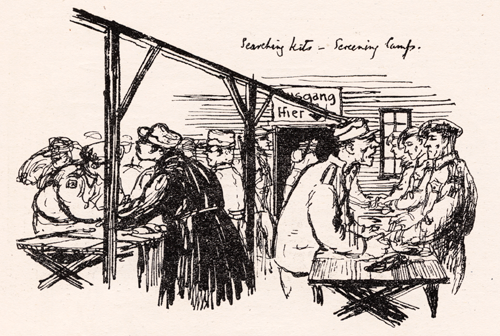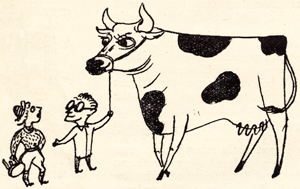ABCA – Army Bureau of Current Affairs
When James Boswell returned to the UK at the end of 1943 he became an officer, knowing he could do more for the war effort within the Ministry of Information and that it would be a far more interesting method of utilising his skills. In December 1944, he was posted to the Army Bureau of Current Affairs, known as ABCA.

ABCA was an extraordinary organisation by any standards. It was set up in mid 1941 in order to educate and raise morale amongst British servicemen in WW2. The Director was W.E. Williams, known as ‘ABCA Bill’ who, with Allen Lane, had started Penguin Books in 1935. He was editor in chief when war broke out. Deeply involved in learning and education, he demanded the right to educate servicemen and women and he ran ABCA according to his own agenda, despite the mutterings of the government. Churchill tried to close it before it was born, insisting the staff be set to do something useful instead. Bill Williams staffed ABCA with people he knew and wanted and cherry-picked all the most appropriate talent he could find. ABCA was believed to have played a significant part in helping the Labour Party win the 1945 General Election. Woodrow Wyatt wrote ‘Whoever dreamed up ABCA at the War Office was in part responsible for Labour’s landslide victory in 1945’.
The aim was simple. Every serving soldier was to take part in a compulsory discussion group once a week to be managed by an officer and to be held in working hours, not in free time. Everyone was encouraged to join in – and they did. ABCA produced regular booklets about anything they considered useful and these were the basis of the discussions. As the war drew to a close and current affairs became more controversial, ABCA encouraged the groups to discuss subjects which Churchill believed soldiers should not think about, let alone discuss among themselves. The booklets supplied were full of useful addresses of associations which were probably not on Churchill’s Christmas List as well as helpful advice about how to cope when the war was over, how to get a job, find a home and cope with a family to whom a returning soldier might be a stranger. Some of these booklets were written by Boswell and because ABCA knew only too well that drawings always help to ease the understanding of text, many of the booklets were filled with his illustrations.

ABCA, as part of the War Office, was housed in 45 Eaton Square, an elegant house which had probably been requisitioned. There was a skeleton staff but they could draw on the services of a multitude of writers, designers, illustrators, economists and specialists in practically anything, many of whom were part of the astonishing left wing coterie of the thirties and all of whom ensured that wartime posters, pamphlets and notices were professionally designed and printed. They commissioned work from Abram Games who designed dozens of posters of outstanding quality and ABCA fought back at Churchill who tried – and occasionally succeeded – in having some withdrawn because he didn’t like them. ABCA commandeered a theatre and produced professional plays based upon current events. Their own particular branch of the Ministry of Information seems to have been entirely independent and to have had little to do with the everyday mess of war but ABCA created a solid basis for the education of those who were part of the mess and who had no idea how to manage the emotions which war had forced upon them. When the war was over and the army was no longer there to attend discussions, W.E. Williams transformed ABCA into the Bureau of Current Affairs, moved to Piccadilly, took several of the ABCA contributors with him and carried on as if nothing had happened. Boswell was one of them.
Sal Shuel




